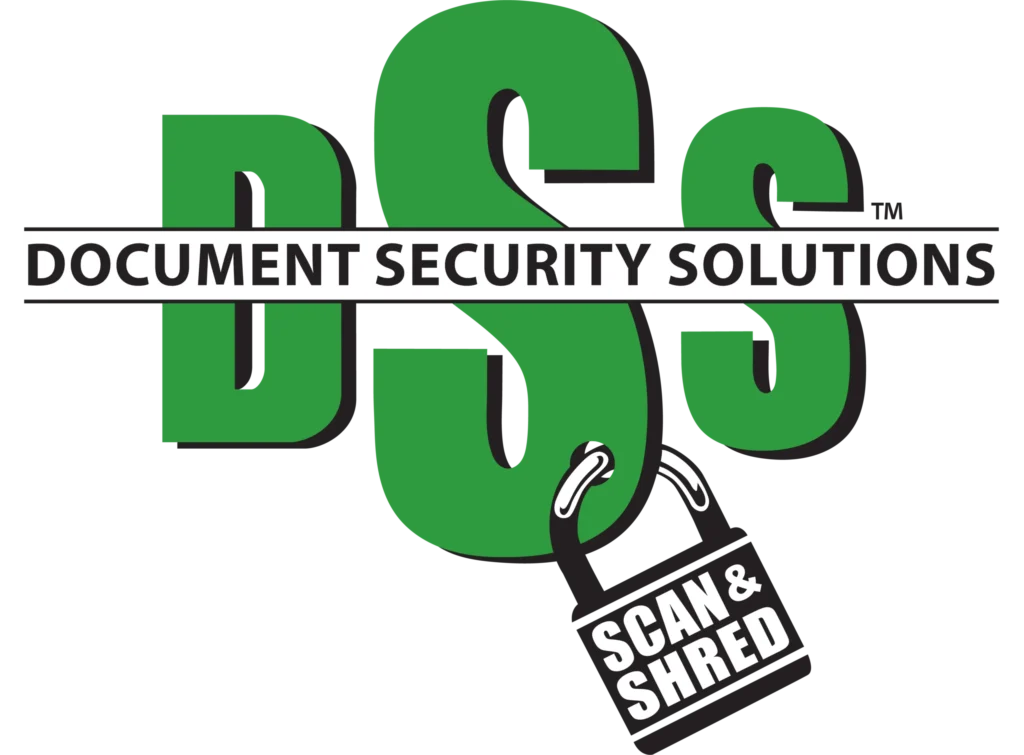Did you know that 80% of corporate memory exists on paper? You’re likely drowning in a sea of documents, but there’s a solution: regular document purging. It’s not just about decluttering; it’s also crucial for legal compliance and operational efficiency. You can’t afford to overlook this practice in your large corporation. Let’s dive into why regular document purging is essential and how to effectively implement it.
Understanding the Concept of Document Purging
Let’s delve into what document purging really means and why it’s crucial for large corporations. It’s the process of permanently eliminating unnecessary records or data from your systems. This could include outdated files, duplicate documents, or irrelevant information that serves no ongoing purpose.
There are various purging methods available, depending on the document types involved. You might use software tools to scan for duplicates and auto-delete them in digital databases. For paper records, you’d typically resort to secure shredding services to ensure complete destruction.
Why is this necessary? Firstly, it clears up valuable storage space – both physical and digital. Secondly, it minimizes the risk of security breaches by reducing the volume of sensitive material that could potentially be mishandled or stolen.
Consider purging as a form of organizational hygiene; you’re decluttering your corporation’s ‘informational environment’, so to speak. You wouldn’t let rubbish pile up in your office spaces, would you? So don’t let unnecessary documents clog up your systems either!
The Importance of Regular Document Purging in Large Corporations
You’d be surprised at how crucial it is to routinely clean out old files in your big business. This process, known as document purging, does more than just tidy up your storage areas; it’s a key player in data security and sustainable disposal.
Document purging strengthens data security by eliminating unnecessary information that could potentially be exploited. It’s much harder for cybercriminals to access sensitive details when they’re not there in the first place.
For sustainable disposal, regular document purging is a must-have strategy. By routinely clearing out redundant documents, you significantly reduce waste while promoting an eco-friendly environment within your corporation.
Here are three reasons why you should make document purging a priority:
– It enhances data security by reducing the risk of cyber attacks.
– It promotes sustainable disposal practices by minimizing paper waste.
– It improves efficiency by decluttering workspaces and streamlining file retrieval processes.
Potential Risks of Not Engaging in Regular Document Purging
If you’re not diligent about cleaning up old files, you’re opening your business to potential security breaches and operational inefficiencies. Not engaging in regular document purging can significantly increase the risks of data breaches and identity theft. By leaving outdated, unnecessary files sitting around, you’re providing a larger target for hackers or unscrupulous employees.
Data breaches prevention is more than just having strong firewalls and secure passwords; it’s also about minimizing the amount of data that could potentially be breached. Every file left unchecked becomes a liability-an opportunity for cybercriminals to exploit your system’s weaknesses and gain access to sensitive information.
Similarly, by not properly disposing of documents that contain personal identifying information, you’re inadvertently aiding in identity theft mitigation efforts. Thieves can use this discarded information to impersonate individuals, causing significant reputational damage to your company and financial harm to those affected.
Regularly purging old documents minimizes these risks. It ensures that only relevant, necessary data is stored in your systems-making them leaner, more efficient, and less attractive targets for attacks. Remember: a clean database isn’t just an organized one-it’s also a safer one.
How Regular Document Purging Enhances Operational Efficiency
As you delve into the topic of operational efficiency, it’s important to consider how regular document purging can play a pivotal role. Engaging in this practice could significantly boost your productivity by ensuring that only the most relevant and necessary data is readily available, eliminating time wasted on navigating through outdated or irrelevant files. Additionally, we’ll discuss how this process can drastically reduce storage costs by freeing up valuable space that would otherwise be consumed by unnecessary documents.
Boosting Productivity
Regular document purging can significantly boost a company’s productivity by reducing clutter and streamlining access to necessary files. It’s not just about cleaning up; it’s a critical part of your digital transformation strategy.
When you commit to regular document purging, you’re making life easier for your employees. Here are three ways how:
– Employee training: With less clutter, new hires can get up to speed faster because they don’t have to navigate through outdated or irrelevant documents.
– Saves time: Your team won’t waste precious hours searching for the right file among stacks of unnecessary paperwork.
– Better decision-making: Access to relevant and updated data leads to more informed decisions.
Reducing Storage Costs
In addition to boosting productivity, you’ll also notice a significant decrease in storage costs when you keep your files in check. One of the cloud migration benefits is that it provides a secure, scalable solution to file storage. You won’t need expensive on-site servers or physical cabinets anymore, and that’s a big plus.
| Benefits | Before Cloud Migration | After Cloud Migration |
| Storage Cost | High due to physical servers | Low as no physical infrastructure needed |
| Accessibility | Limited access outside office premises | Accessible anytime, anywhere |
| Environmental Impact | High due to energy use by servers | Sustainable environmental impacts with reduced carbon footprint |
This shift not only cuts costs but also has sustainable environmental impacts. The reduction in energy use and waste production contributes significantly to your company’s green initiatives. Remember, every little step towards sustainability counts!
Legal Implications and Regulatory Compliance of Document Purging
You’re responsible for understanding the legal implications and regulatory compliance aspects of document purging in your corporation. It’s crucial to manage data privacy concerns, evaluate environmental impact, and ensure all actions align with legislation.
Part of this responsibility includes being well-informed about:
* Data Privacy Laws – Different regions have varying laws on how corporations should handle personal data. Be familiar with GDPR, CCPA, HIPAA or any relevant regulations that apply to your business.
* Environmental Regulations – Document disposal has an environmental impact. Ensure you’re respecting local waste management guidelines during purging processes.
* Corporate Liability – Failure to properly purge obsolete documents may expose your corporation to legal risks, such as lawsuits or fines.
Ensuring compliance isn’t just ticking boxes; it’s a strategic initiative aimed at protecting the corporation’s reputation and financial health. So don’t take this lightly. Stay updated on changes in regulations, implement robust document purging policies, and educate employees about their roles in ensuring compliance.
Best Practices in Implementing Regular Document Purging
Implementing systematic clean-ups of old files and paperwork isn’t just about decluttering, it’s a best practice that enhances operational efficiency and reduces legal risks. You’ll find the process less daunting if you adopt Purge Scheduling and Purge Automation.
Purge Scheduling is setting regular intervals for discarding unneeded documents. It’s not a one-size-fits-all affair; your schedule should reflect your organization’s unique needs. On the other hand, Purge Automation utilizes software to automatically delete files after a specified period, reducing human error.
| Best Practice | Explanation |
| Purge Scheduling | Set regular intervals for discarding unneeded documents |
| Purge Automation | Use software to automatically delete files after a specified period |
Keep in mind, though: don’t just purge indiscriminately. Ensure that you’re adhering to industry-specific regulations about data retention periods. Your legal team should play an integral role in this process.
Case Studies: Successful Document Purging in Large Corporations
You’re about to delve into a discussion on successful document purging approaches employed by some of the world’s leading corporations. You’ll learn how IBM’s precise approach to document purging has been instrumental in data management, the factors that contribute to Google’s success in data deletion, and the far-reaching impacts of Microsoft’s purge policy. These case studies will provide you with valuable insights into best practices for managing and deleting data at large-scale operations.
IBM’s Document Purging Approach
IBM’s approach to document purging isn’t just thorough, it’s also efficient and reliable. They’ve developed unique systems that make the process seamless for large corporations. They’re a leader in purging innovations, and many firms are choosing to outsource their purging processes to them.
– IBM uses advanced algorithms that identify outdated files quickly.
– Their system is designed to keep critical documents intact while removing unnecessary ones.
– Outsourcing to IBM means you’ll have more time for your core business areas.
You can trust IBM’s expertise in this field. They’ve proven methods ensuring compliance with data regulations while enhancing operational efficiency. So if you’re thinking about improving your company’s document management system or outsourcing your purging processes, consider the benefits of partnering with IBM.
Google’s Data Deletion Success
Just as IBM has its own success in data management, Google’s also made impressive strides in data deletion. You’ll find that Google’s privacy measures are top-notch, consistently being updated to match deletion technology advancements. In fact, these measures are an integral part of their strategy to ensure user-data protection.
Their process involves a systematic approach where obsolete data is identified and purged from the system. But it doesn’t stop there; they take further steps to make sure this deleted information can’t be recovered, ensuring user-privacy isn’t compromised. This focus on secure deletion reflects a keen awareness of the importance of privacy in today’s digital landscape.
In essence, Google has demonstrated an exemplary commitment to safeguarding sensitive information through effective document purging practices.
Microsoft’s Purge Policy Impact
Microsoft’s also shown a robust commitment to data deletion, which has had a significant impact on user trust and corporate reputation. You’ve probably noticed the evolution of their purge policy, as they’ve stepped up their game in response to privacy concerns.
– Microsoft’s security measures have tightened considerably; they’re now deleting unnecessary data systematically.
– They’ve implemented a more comprehensive review process for data preservation requests.
– They are constantly updating their policies to align with changing regulations and user needs.
You can rest assured that your data is safer than ever before with Microsoft. It’s clear that they’re putting effort into maintaining user trust by ensuring effective implementation of these policies. In essence, this purge policy evolution signifies Microsoft’s commitment towards better transparency and control over personal information.
Frequently Asked Questions
What Are Some of the Software or Tools That Large Corporations Can Use for Regular Document Purging?
You can use various tools for document purging like DocuWare, Shred-it, or FileHold. Integrating purging software enhances cybersecurity, ensuring sensitive data isn’t accessible post deletion. Always research and choose what best suits your company’s needs.
How Can Employees Be Trained Effectively to Handle Document Purging Without Inadvertently Destroying Important Documents?
You’ll need a foolproof training plan. Start by instilling strict ‘Purge Protocols’. Then, teach ‘Document Identification’ to distinguish vital records from redundant data. Remember, errors aren’t just mishaps; they’re learning opportunities in disguise!
Are There Any Environmental Implications of Regular Document Purging?
Yes, there are environmental implications. You must consider green initiatives in purging and use sustainable disposal methods. It’s not just about deleting files, but also responsibly recycling any physical waste produced.
How Can Large Corporations Balance the Need for Document Purging With the Need to Retain Historical Records for Internal Use?
Balancing document purging with record retention can be tricky. You must navigate legal consequences and maintain data security. Use a strategic approach, retaining vital records while securely disposing of non-essential ones to avoid clutter and confusion.
How Can Corporations Measure the Success or Effectiveness of Their Document Purging Processes?
You can measure the effectiveness of your document purging processes by analyzing purging metrics such as volume reduction, cost savings, and retrieval times. These metrics reflect key purging influences on business efficiency.





